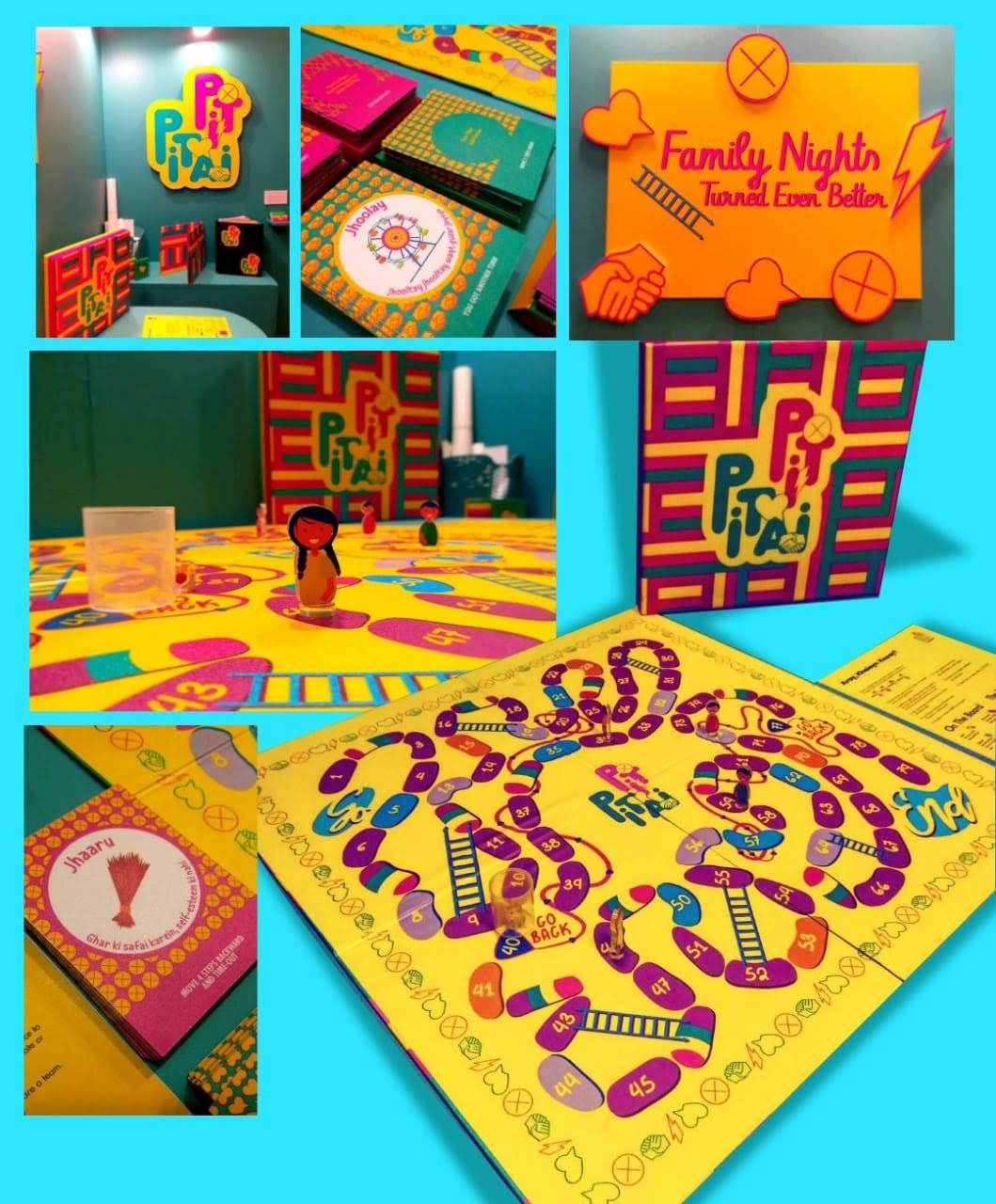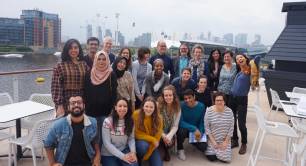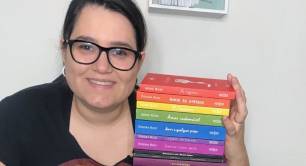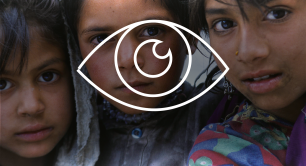Let’s get down to business: mixing creativity and entrepreneurship in Pakistan
A family board game to improve children's behaviour, hand-printed scarves and upcycled leather wallets are just some of the products created by the craftspeople who are taking part in Pakistan's first ever creative enterprise incubator. These enterprises have the potential to strengthen families, preserve traditional arts and generate jobs – but first their founders must learn how to run a great business. DICE Young Storymaker Asad Pabani talks to some of them as the incubator launched this summer.

Whether it is preserving traditional art forms threatened by the forces of mechanisation, changing societal attitudes on issues such as women’s participation in the workforce, or simply creating opportunities for the 64% of Pakistanis under the age of 30, the need for creative social entrepreneurship has probably never been greater in Pakistan.
Yet while social enterprise as a whole has come a long way in the country, the same cannot currently be said of creative social enterprise. A 2016 British Council report estimated that there are nearly half a million social enterprises operating in Pakistan. Proportionate to its population, that’s more than twice as many as the 70,000 social enterprises currently operating in the UK.
But the same report also highlighted the small proportion of Pakistani social creative enterprises, noting that more than 80% of the 143 social enterprises the researchers surveyed were working in the fields of education or health.
That does not necessarily mean there is no potential for small-scale creative social enterprises in Pakistan. In fact, unlike in developed countries where large companies dominate the market, small and medium-sized enterprises have a massive footprint in the Pakistani economy – they produce 30% of the country’s GDP and employ 80% of its non-agricultural labour force. The question then is, can SMEs with a creative social aim succeed? To answer that, it is first essential to understand what being a creative social enterprise entails.
Shaista Ayesha, head of business and product development at SEED, a Pakistan-based social enterprise development organisation, explains that a creative social enterprises are involved in a number of creative activities including filmmaking, textiles and gaming (see film below).
“If you’re operating under any of these verticals and you’re trying to fulfil a social aim or you’re trying to alleviate a social challenge by selling your goods and services, that would make you a creative social enterprise,” she says.
To address the paucity of creative social enterprises in Pakistan, SEED is collaborating with Cockpit Arts, a London-based incubator for craftspeople, to set up a first-of-its-kind incubation programme in Pakistan. Labelled RISE, or Raising Innovative Social Enterprises, it is part of the British Council’s DICE (Developing Inclusive and Creative Economies) initiative which attempts to address unemployment and economic inequality in five emerging economies to create more inclusive growth.
The basics of business
The three-month RISE programme, based at the Indus Valley School of Art and Architecture in Karachi, Pakistan, aims to develop the capacity of the 14 creative social entrepreneurs enrolled in its first cohort, which will expand to 20 for its second – and final – cycle. Through the duration of the course, they will be taught the basics of developing sustainable business models while at the same time learning about how to visualise and measure the social impact of their businesses.
The technical training and business advice that they will receive will be crucial in successfully tackling the social issues that their business seeks to rectify, not least because the programme does not offer any funding to the entrepreneurs. While some may consider this a significant impediment, for David Crump, head of incubation at Cockpit Arts (filmed below), the bigger issue is the general lack of understanding on how to create a sustainable business.
As Crump explains, some craftspeople have good ideas that “tick the creative and social box”, but the idea of sustainability needs to be worked on.
For Crump, that sustainability can only come from understanding one’s target market and considering how to adapt the product to reach that market.
Teaching the entrepreneurs how to crack that model of sustainability will undoubtedly be one of RISE’s foremost priorities because many in the incoming class do not yet have a firm grasp of what their business models will look like.
 Areeba Marium, a recent graduate of the Indus Valley School of Art and Architecture, has created a family-friendly boardgame called Pit Pitai (right) which explores the effects of positive and negative reinforcement on children’s behaviour. However, figuring out how to scale up her product while keeping costs down has been a struggle.
Areeba Marium, a recent graduate of the Indus Valley School of Art and Architecture, has created a family-friendly boardgame called Pit Pitai (right) which explores the effects of positive and negative reinforcement on children’s behaviour. However, figuring out how to scale up her product while keeping costs down has been a struggle.
As Areeba explains on the film: “I have not really gone through the market survey of how much it (should) cost. Right now, I know if I go into the market right now with this paper quality and everything, one piece would easily cost around 8000 rupees (£40) to the consumer, which is too much for a board game, which is why I’m still experimenting with paper quality and printers.”
Similarly, another of the selected entrepreneurs, Johnson Nazar (filmed below), who holds workshops in his neighbourhood on creating embroidered art from recycled materials and everyday items such as clocks and sieves, spoke candidly about the challenges facing his business, Abi Art and Craft Studio. Belonging to the country’s underprivileged Christian minority, it irks him that many view his community as only fit for menial jobs. He sees social entrepreneurship as a means of breaking free of society’s constructs. Yet, by his own admission, he hasn’t fully thought through what the pricing structure and target audience for his business will be.
“I heard that this program at SEED will teach me how to market my product, so I’m very grateful for being selected, I love it, and hopefully I’ll learn how to do that through this programme.”
The business experience, or lack of, was not uniform across all the selected entrepreneurs however. Some, through the course of their presentations, displayed a better understanding of their place in the market. For example, Muhammad Junaid’s company Essential Element, which is modelled on a similar successful European firm, has been making affordable leather goods using only recycled and waste leather since 2011. Another entrepreneur, Ghulam Abbas, has a niche in the market that his business, Prints and Patterns, intends to focus on. Ajraks – scarves embroidered with traditional Sindhi prints – are extremely popular in the capital of Sindh, Karachi, which also happens to be the commercial capital of the country. Yet most of the ajraks sold in the markets are machine printed, which cannot attain the same quality or intricacy in design as handmade ajraks. Abbas’ ajraks on the other hand are made by block printers in rural Bhit Shah who have been trained in the art over generations.
Learning how to create a sustainable business model will be the key for their survival in a country where all enterprises, social or not, face significant challenges operating in an economy which ranks 136th in the world for ease of doing business. It is just as well then that that is exactly what this programme is teaching them.
Asad Pabani is a DICE Young Storymaker – one of fourteen young journalists from six countries recruited by Pioneers Post and the British Council to report on social and creative enterprise around the world.
Header photo: Hameed Chacha, a leather hide tradesman who has been working in Karachi's leather market since the 1970s. He doesn't have a shop or a stall, so every morning he hangs up assorted pieces of leather before packing them away at sunset. He was photographed during a tour of the market led by RISE incubatee Essential Elements. Photo by Bird's Eye View Photography.



